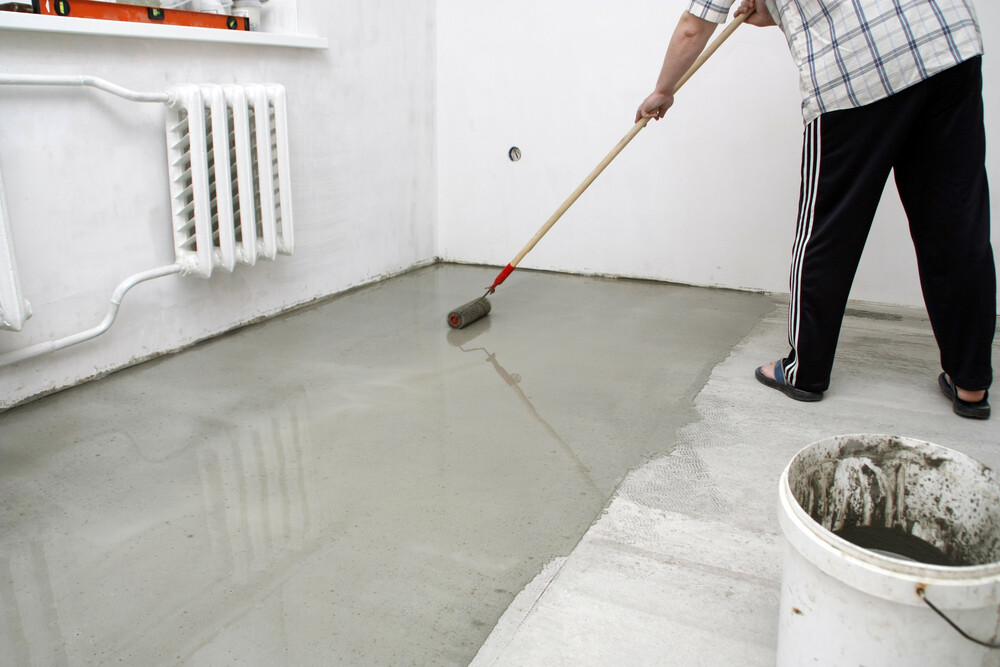Did you know that excess moisture can ruin the interior of your garage? That’s right. If you are a Canton resident, you’ll be looking for garage door repair in Canton Ohio before you know it. That’s why in today’s article we are going to take a deeper look at moisture in your garage, the causes of it, why you need to do it, and what takes to prevent it. Because the last thing you want is to have a garage that smells like mold or feels constantly wet. Let’s get started!
Why Does My Garage Always Feel Wet?
There are many reasons why your garage floor might feel damp or wet. Usually, the problem is condensation. Another more unofficial term for this phenomenon is “garage floor sweats.” In many cases, this problem is caused by improperly installed concrete. A bad install results in excess moisture under the concrete slab. Fortunately, there is a simple test you can conduct to determine what type of garage moisture problem you’re dealing with. If the air temperature in your garage is too moist and warm but the ground is cold, condensation could be the problem. It is important to remember that concrete is a porous material. As such, moisture from the ground certainly can seep into your concrete floor slab. It’s up to you to prevent it. Environmental changes can also cause an increase in moisture content levels. One example could be removing a large plant or tree from your garden. These types of landscaping changes will cause the surface water table in the ground to rise because the shrub is no longer using it. You have to keep these things in mind when you make changes to your property. There is another obvious reason you might be experiencing excess condensation in your garage. The lack of a lining or membrane could result in excess moisture. Although it is common practice to install a lining membrane in new construction, it may have been missed in your build. That’s why it is still worth checking to see if this is what is causing your damp concrete and floor. If the damp-proof lining is above floor level, the exposed brickwork will almost always be damp, which will create more humidity and condensation.How to Properly Diagnose Your Damp Garage
Fortunately, a simple test can be used to determine the source of excess garage moisture. Try these steps as you attempt to isolate the problem. First, clear and brush a section of your garage floor to remove all debris, dirt, and other obstructions. Then, cut a small, approximately 10 centimeters squared, and all over your garage floor and allow it to sit overnight. Then, the next day, head into your garage and feel the top of the plastic. If the top of the plastic is wet but the concrete underneath is dry, you’re experiencing garage floor sweats. Conversely, if the underside of the plastic is wet and not the top, then you may be looking at a problem with excessive moisture beneath the slab. No matter where the moisture is, it could cause major problems in your garage if it is not addressed. In the end, if you want to prevent a garage door repair in Canton Ohio call request, then make sure you conduct the aforementioned test before calling your local garage door repair professional. It may very well be that you do not need any extensive repair or garage reworking.How Do You Fix or Prevent Excessive Moisture in Your Garage?
In a perfect world, moisture control construction methods would be used during your garage’s initial construction phase. It is common practice for reputable builders to ensure this is done before the first struts are installed. And yet if these methods are unavailable or have failed in some way, we’ve got some suggestions for you to properly resolve and seal a damp garage floor. First, consider the following options:- Install a moisture-proof floor sealing membrane.
- Use a dehumidifier to reduce the overall level of humidity in your garage air.
- Increase the ambient temperature of the garage to cause excess moisture to evaporate.
- This is an extreme option, but you could also change the surface of your garage floor.

